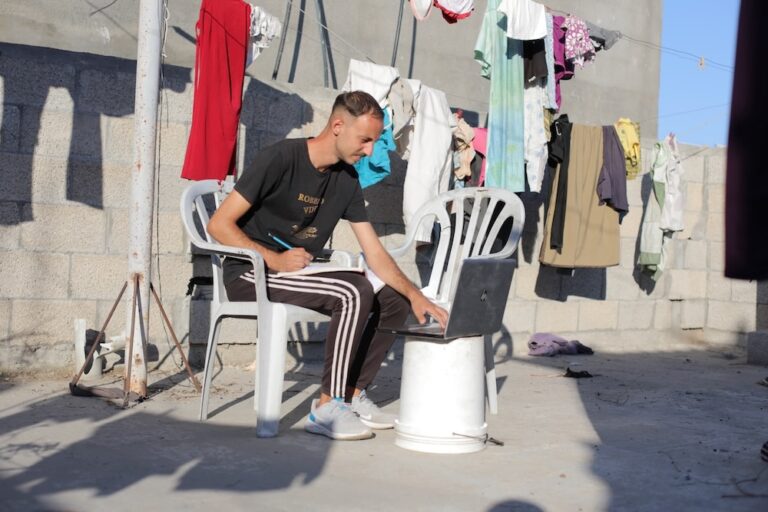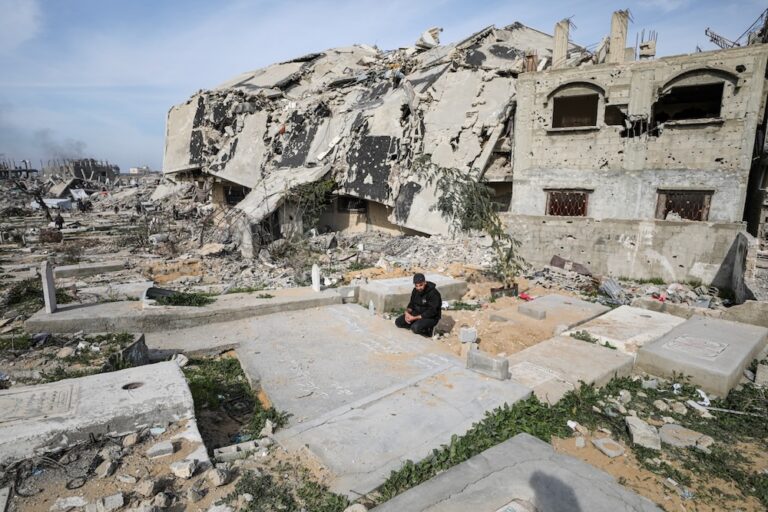Two new laws affecting Palestinian Arab residents would promote discrimination and stifle free expression, Human Rights Watch said today.
(Human Rights Watch/IFEX) – Jerusalem, March 30, 2011 – Two new Israeli laws affecting Israel’s Palestinian Arab residents would promote discrimination and stifle free expression, Human Rights Watch said today. One would authorize rural, Jewish-majority communities to reject Palestinian Arab citizens of Israel and other “unsuitable” applicants for residency, and the other would chill expression regarding a key moment in the history of Palestinian citizens, Human Rights Watch said.
“These laws threaten Palestinian Arab citizens of Israel and others with yet more officially sanctioned discrimination,” said Sarah Leah Whitson, Middle East director at Human Rights Watch. “Israeli parliamentarians should be working hard to end glaring inequality, not pushing through discriminatory laws to control who can live where and to create a single government-approved view of Israel’s history.”
The Knesset passed both laws on March 23, 2011. One officially authorizes “admissions committees” in about 300 Jewish-majority communities to reject applicants for residency who do not meet vague “social suitability” criteria. The measure anchors in law a practice that has been the basis for unjustly rejecting applications by Palestinian Arab citizens of Israel as well as members of socially marginalized groups such as Jews of non-European ancestry and single-parent families.
The second law would heavily fine any government-funded institution, including municipalities that provide health and education, for commemorating the “Nakba” – the Arabic term to describe the destruction of Palestinian villages and expulsion of their residents after Israel’s declaration of independence – and for expression deemed to “negate the existence of Israel as a Jewish and democratic state.”
( . . . )
“This effort to punish the peaceful expression of opinions by Israelis who receive state funding is an insult to Palestinian Arab citizens of Israel and a threat to freedom of expression,” Whitson said. “Since when does the Israeli government have the right to tell Israeli citizens what they’re not entitled to say about history?”
The Nakba law’s threefold financial penalty threatens to harm the rights of citizens – for example, by cutting federal funds that municipalities need to provide health, housing, education, and other services, Human Rights Watch said. For example, according to an Organization for Economic Cooperation and Development report on Israel, local governments are responsible for providing basic social services but receive 75 percent financing from the central government to procure those services. The predictable result of the law’s severe penalties and the vagueness of the acts and institutions that could be penalized is that it will broadly chill freedom of expression by preventing various institutions from commemorating the Nakba at all, Human Rights Watch said.
“The government is telling Arab-Israeli municipalities and other institutions that if they don’t shut up about the Nakba and anything else that bureaucrats may deem anti-Israeli, they’ll have to shut down programs and services for lack of funds,” Whitson said. “Democracies shouldn’t quash expression even if it’s unpopular, and in this case, what’s unpopular to some legislators is central to the historical narrative of a million and a half citizens.”
( . . . )


